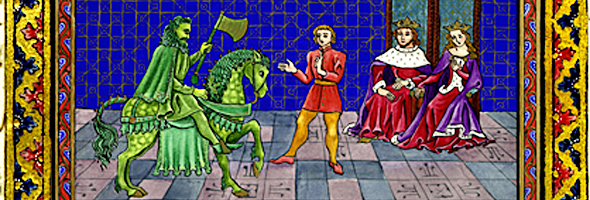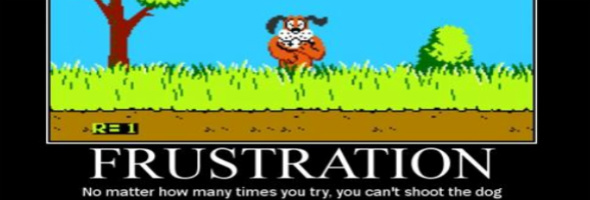
If you’ve ever wondered what happens when PhD meets MMO, here’s an interesting read for you. It’s a far cry from carebear Professor Syd, but I find this bit of research interesting just because it differs so much from my own outlook on the game world. A couple weeks ago, nola.com ran an article on Loyola professor David Myers detailing his experience in the MMO City of Heroes / City of Villains. This article links to a draft of Meyers’ own academic paper on the subject, “Play and Punishment: The Sad and Curious Case of Twixt,” which is the most thorough treatment of the matter. Normally, I support any and all research about online games, but for some reason, this one pushes my buttons. I’m not the first blogger to comment on the matter. In fact, I think that many of my thoughts are in agreement with Spinks’ excellent article.
The “Experiment”
Myers, who has since left CoH/V, had been an ordinary player of the MMO for some time when NCsoft, the developer, introduced PvP to the game. I’ve never played CoH/V myself, but from Myers’ description, gameplay seems to be almost exclusively PvE. A new world PvP zone, Recluse’s Victory, changed the game for Myers’ character Twixt. He decided to PvP in the most aggressive manner available, and in the process of winning at all costs, well, he attracted a bit of criticism. As I’ve never played CoH/V myself, I have to abstract from a description, but it seems that Recluse’s Victory had several captureable nodes for each side, similar perhaps to the Alterac Valley towers. There are also a mix of NPCs in the zone, including some unbeatable guard-like creatures called drones meant to protect the two “safe zones” where players spawn. To a WoW player, this probably sounds like good fun, right? The Heroes beat the crap out of the Villains, and vice versa, and everyone has a grand old time. However, according to Myers’ claims, all he (and his avatar Twixt) wanted to do was force people to PvP in the PvP zone. That sounds perfectly rational, as far as it goes.
However, Twixt did not routinely engage others in “true” PvP. His preferred technique was to enlist NPCs in his cause, and as such, win battles without struggle. Twixt chose to learn an ability called teleporting, which I see as analogous to the Death Knight’s Death Grip. He used this skill to move enemies a short distance–right into the drones, which would instantly kill the opposing player. Because a death to a drone counted as a PvE death, players would incur what is called XP “debt.” Now, I am not quite sure what this is, but it seems to cost people a good bit of time (like re-leveling) before they can advance. Indeed, Twixt PvP’d in a PvP zone. However, the manner in which he did so would certainly be termed, in WoW anyway, an exploit. As a result, many players grew angry at Twixt and vented their frustrations in chat and on the CoH/V forums.
What is Real PvP Anyway?
As generations of games and their players have defined it, PvP is, at its core, a one on one engagement between two players of equal potential though perhaps not equal mastery of the game mechanics. At its purest, PvP is a duel of honor, evoking very consciously, and with a great deal of nostalgia, the chivalric tourney or ritual hand-to-hand combat. I will say that PvP combat, while it may be supposed to resemble, say, the showdown between Hector and Achilles, reminds me much more often of Peter Jackson’s chaotic Battle of Pelennor Fields (except that usually I’m one of the pitiful orcs on the losing side). In any case, PvP often does not seem very honorable to me. It reminds me, rather, of the very real butchery that occurred on the battlefield and off in the historical Middle Ages. Our nostalgia for chivalry is based mostly on idealized forms of art rather than actual history–and so one might say that “chivalry” achieves one of its fullest expressions in video games.
As for me personally, I’d rather not be involved in PvP, honorable or no. I play on a PvP server, but I don’t actually PvP anymore. I used to like Alterac Valley back in Classic, but I didn’t raid then, and it was the most exciting endgame option I had. I don’t love it when I get ganked while doing my daily quests. However, I shrug it off, knowing that the technique is perfectly fair in WoW. At the current time, I play Syd as a pacifist. I find it better for my blood pressure not to retaliate against gankers. I’m a healer–of course they can kill me if they like. I usually take the opportunity to get away from the keyboard for a while. When I come back, the ganker has always been gone.
The Developers’ Responsibility
I don’t think I could work up any particular hatred for the numerous horde players who have killed me as I’ve gone about my PvE business. Some of them have even used techniques similar to Twixt’s by waiting until I engage an enemy mob to start their attack, thus enlisting the game environment against me. I think that the reason I can’t muster any fire over this has to do with WoW itself and Blizzard as a company. We play an actively maintained game with integrated PvP. When there are PvP balance issues, Blizzard addresses them. Some of us may consider their response too slow, but the fact remains that the “gods” of WoW listen to the pleas of their suppliants. For an example that offers an instructive parallel to Twixt’s story, think back to the Zombie Invasion event that preceded the release of Wrath of the Lich King. For that time period, we were supposed to turn people into zombies, kill NPCs, and interrupt the ordinary business of buying, selling, and leveling with our zombie disease. Many players got a hateful response like Twixt did when they attempted to participate in the event as intended, taking over cities and killing with abandon. What did Blizzard do? They recognized that the community, as a whole, disliked the event and ended it after three days. Some complained, but I see it as a wise move, even though I, in very atypical fashion, had a bit of fun being a zombie. The point is that Blizzard recognizes the importance of players’ customs–and also players’ safety–and adapts their game. I have heard scattered stories of people being g-kicked for overzealousness with the zombie event, but by ending the event when they did, Blizzard protected both the pro-zombie and anti-zombie factions.
I have no sense that NCsoft maintains CoH/V in such an active way. Thus, the community of CoH/V is left to fend for itself and make its own rules. Even CoH/V’s forums are maintained by players and not NCSoft employees! What a difference from the WoW forums. In the world of CoH/V, the gods are absent or hostile, Hector and Achilles are six feet under, and players are left to deal with the “deviant” Twixt on their own. At least from the players’ perspective, Twixt is a griefer. In their opinion, he kills people using unfair tactics, in a manner that leaves them handicapped and with no opportunity to fight back or take revenge. In short, Twixt is cruel. It doesn’t surprise me that many responded with vitriol. Most of these comments were your typical “f-you” sort of things, but Meyers received at least one death threat.
What are the Rules?
Myers insists that he “played by the rules” when others refused to. He cites examples of duels of honor within RV, collaboration between Heroes and Villians (who, incredibly, could talk to each other while inside the PvP zone), and farming within the PvP zone as instances of players violating the rules. Now, I am an avid gatherer of herbs in Wintergrasp, and I don’t think I’m violating anything–after all, why would there be Lichbloom if I’m not supposed to pick it? It seems to me that, at once, Myers has both a broad and a narrow definition of game rules. It’s certainly idiosyncratic. As I see it, Twixt abides by two principles:
1. Anything that is possible to do within the game mechanics is fair game.
2. Any custom that the players establish is not a rule.
To address the first, I’ll return to an old topic of mine, that of exploits. It’s always hard to tell what the developers intend or do not intend. In my previous article, I reflected on several cases in WoW in which players were banned for “exploits” that were possible within game mechanics and not covered by the EULA. If Twixt were a WoW player, he would risk a permanent ban. The Blizzard developers actively track and eliminate exploits. Twixt’s drone technique would certainly be deemed an exploit if it existed in WoW, for the simple reason that it gives the victim no chance to react before he is annihilated. In WoW, small changes are made all the time to the battleground and arena environments in order to make for “fairer” play. Moreover, Blizzard has made it abundantly clear through their banning practices that players are meant to keep to the spirit, not just the letter, of game mechanics. Pushing the boundaries often results in a ban. I am usually sympathetic to players who receive bans for deviant behavior. Why can I not muster the same level of compassion for Meyers?
On Empathy
There are very complicated forces at work here. On the one hand, we have Twixt, a self-styled video game rebel. I usually celebrate rebels. For a contemporary example, I really loved the movie Bruno. I’m still not sure whether certain parts reinforce homophobia, but I will say that I laughed and clapped through the whole thing. I like Sacha Baron Cohen’s ideological project, though I will be the first to admit that his personae of Bruno and Borat can be downright predatory. Do I laugh because I agree with Cohen’s politics? Does a part of me think that Cohen’s targets are fair game? I have to say, though, that at times I sympathize more with Cohen’s victims. Many of the people depicted in Bruno–Ron Paul comes to mind–conduct themselves with relative dignity. Sometimes the joke returns on Bruno to the detriment of Cohen’s political message. Sometimes you eat the bear, sometimes the bear eats you. I think that it is the sense of give-and-take in the Sacha Baron Cohen films, along with their not-so-hidden agenda of advocating for social change, that makes me like them. It’s easy to like an utter fool like Bruno, even though I would call many of his stunts cruel. It’s very hard to like Twixt.
What Twixt Doesn’t Understand
I was so interested by Myers’ research that I corresponded with him in his blog comments. Sadly, he’s now closed them down. It always seems that intellectual conversations have to end once I’m finally learning something from them! In our give-and-take, what impressed me the most was Myers’ inability to understand what happened to him. There’s a sort of forced naiveté to his tone that surprises me. In the blog comments, I expressed my sympathy for the death threats Myers received, but I also tried to explain to him why players were so angry. To most people who play MMOs, the rules of custom and social interaction matter. They are not there to “experiment” with the virtual world. They are there to live in it. To them, their community is very real. I understand this, because I do not play for research–I play for fun. There is some doubt in my mind as to what kind of gamer Myers was. In his paper, he represents his time in CoH/V as an experiment in deviant behavior. Oddly, in his comments to me on the blog, he says that it wasn’t an experiment at all–just the way he played. I’m puzzled by that, though I realize that for a professional publication, it might be advantageous to represent one’s actions purely as research. In his paper, Myers says that he tried to breach known social customs while working within the rules of the game–all to prove a point. It seems though, that he greatly regrets the hostile response he received. It seems that he neither wanted nor expected the unfriendly response of other players. On this point, at least, I feel sorry for him. He seems–to me anyway–like the little boy who kicks down another child’s sandcastle and then is very surprised when the second boy (or girl) punches him in the nose. Of course, the punch is the greater offense, but it does not mean that the first child did not also feel genuine hurt. At the core of it, Twixt is a bully. Now, he’s not a very harmful one in the grand scheme of things, but he is a bully nonetheless. I guess he expected his opponents to run away crying instead of socking him in the nose.
It’s all the Developers’ Fault, Redux
I’m pretty well-known for criticizing game developers. In fact, it seems like all I do is protest against Blizzard’s policies. In this case, I’m about to lionize Blizzard (I know, check to see if hell has frozen over) and lambaste NCsoft. I may hate the tone that Blizzard developers take when they address their community, but I have to give them credit for actively maintaining their game. The way I see it, it is the developers’ responsibility to provide a safe gaming environment for all. The developers ought to have both protected Myers and undermined Twixt’s influence on the game world. If I were the developers, I would have taken the following steps to solve the Twixt dilemma.
1. Shut down the ability to chat across factions. It seems incredible to me that a game would allow for such venting of rage. There is a good reason that no one has invented a loudspeaker that could project road-rage inspired comments into the next car.
2. Permanently ban the players that threatened Twixt or started malicious rumors about his real-life pursuits.
3. Get rid of the drones. Twixt’s technique strikes me as an unintended use of game mechanics. Meyers calls it “exploring system potentials,” and I call it exploit. Only NCsoft knows for sure, but what is certain is that the developers could have created peace in their game world by getting rid of these things or making them weak enough to allow a player to escape.
Does Twixt have a Place in the Virtual World?
Meyers eventually quit CoH/V, worn down by what he saw as harassment. It didn’t occur to him to change his behavior, and I still don’t think he understands the response he got. Case in point: Meyers was surprised when his Heroes guild kicked him. This “sudden and unexpected expulsion” came about when Myers, logged onto a Villain alt known to his Heroes guild members, turned his droning technique against a member of his own guild. Who would do this and not expect someone to be upset? Now, Myers might say that guilds are “against the rules” as they are not officially talked about in the EULA. What guilds usually do is make the world nicer. They give a person friends and allies. They try to inspire loyalty. The code may be unwritten, but it is nonetheless a code. I will also note that, as a former GM, a g-kick does not qualify as harassment–it’s not harassment to disapprove of someone’s behavior or to dissociate oneself or one’s organization from them. Once again, Myers comes off as incredibly naive. If he wanted to gank members of his own guild, why not do so on an anonymous alt? He just can’t understand why others are angry at him. So, not only will the bully kick down an unknown kid’s sandcastle, but he will do the same to his brother’s. I have a younger sibling myself who was a holy terror as a child. As an adult, at least he understands why it was not cool to play “shark” and bite me in the swimming pool. As adults, we’re great friends and can laugh about such things, though I have to say, if he walks near the edge of a pool I’m definitely pushing him in. Myers can’t understand why the game of “shark” is only fun for the shark. Twixt plays to win, and he plays for science, but he doesn’t play to understand human beings. As such, his place in the virtual world grew smaller. He laments in his paper that he was the victim of “ridicule and the threat (or actuality) of social ostracism.” Eventually, he was forced into being a lone wolf–the only shark in an empty swimming pool. While I might feel a bit sorry for him, I will assert that he should have expected this consequence from the outset of the “experiment.” I do think he had a right to play as he did, at least until such time as NCsoft decided to curb that playstyle, but at the same time, he should have recognized the simple principle that actions have consequences. Very few people have the determination to continue ganking, or biting others, or kicking down sandcastles so far past the point when others disapprove the behavior. It must have taken a good bit of single-mindedness to accomplish it. One of Myers’ detractors, cited in Myers’ paper, says quite eloquently: “It’s almost like he’s an NPC, and if you consider him in that light everything makes a lot more sense.” Maybe so.
Is Meyers’ Research Dangerous?
I am always sensitive to the representation of MMO gaming in the press. My worst fear is that some popular news outlet could get wind of this story, and without understanding a thing about MMOs or their communities, conclude that gamers are vicious, deviant, and homicidal. I would counter that humanity itself is rather vicious. From my knowledge of history, I conclude that we, as a species, work much more often toward the greater evil than the greater good. I see human history, fundamentally, as a tragedy. Despite attempts at peace, empathy, and progress, we so easily devolve into violence. Perhaps Myers experienced some of that violence, about which I am regretful. I would say, though, that in my experience MMOs are no more violent–and sometimes less so–than real life. Maybe I am colored by my own experience, but for every hostile idiot, there are about a hundred carebears in the game world. I don’t know which category to place Myers in. He’s certainly not an idiot, but he is a bit hostile–even to me in the blog comments, though of course, I could have simply misunderstood the tone. What bothers me about Myers is that he is fundamentally unable to appreciate that other players might define the purpose of the game differently from him, just as they are unable to understand his play style. Myers has a very sophisticated set of academic rhetorical strategies to justify his view. The other players involved only have the textual violence of “f-you” tells and posts. However, the failure of understanding is on both sides.




